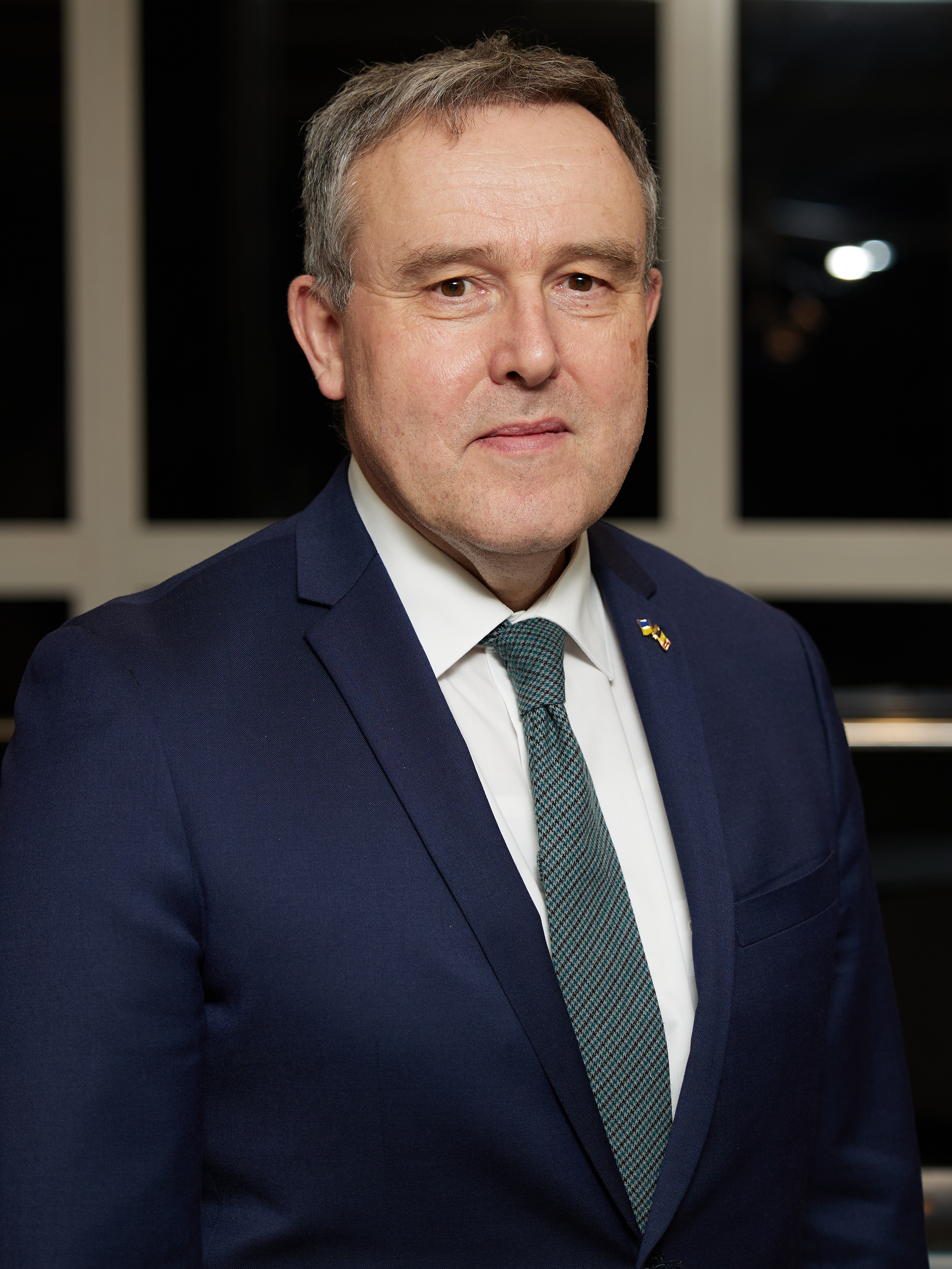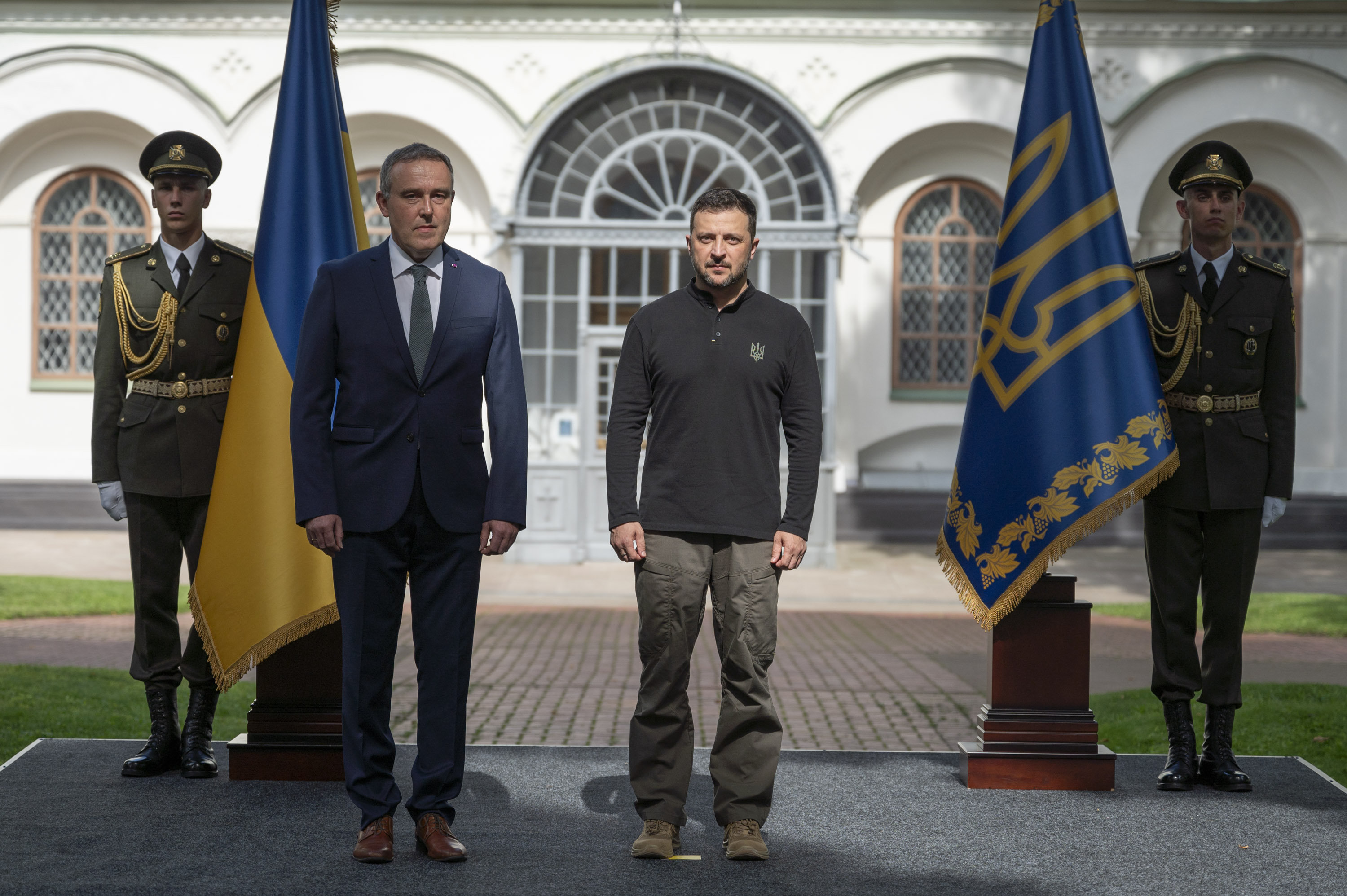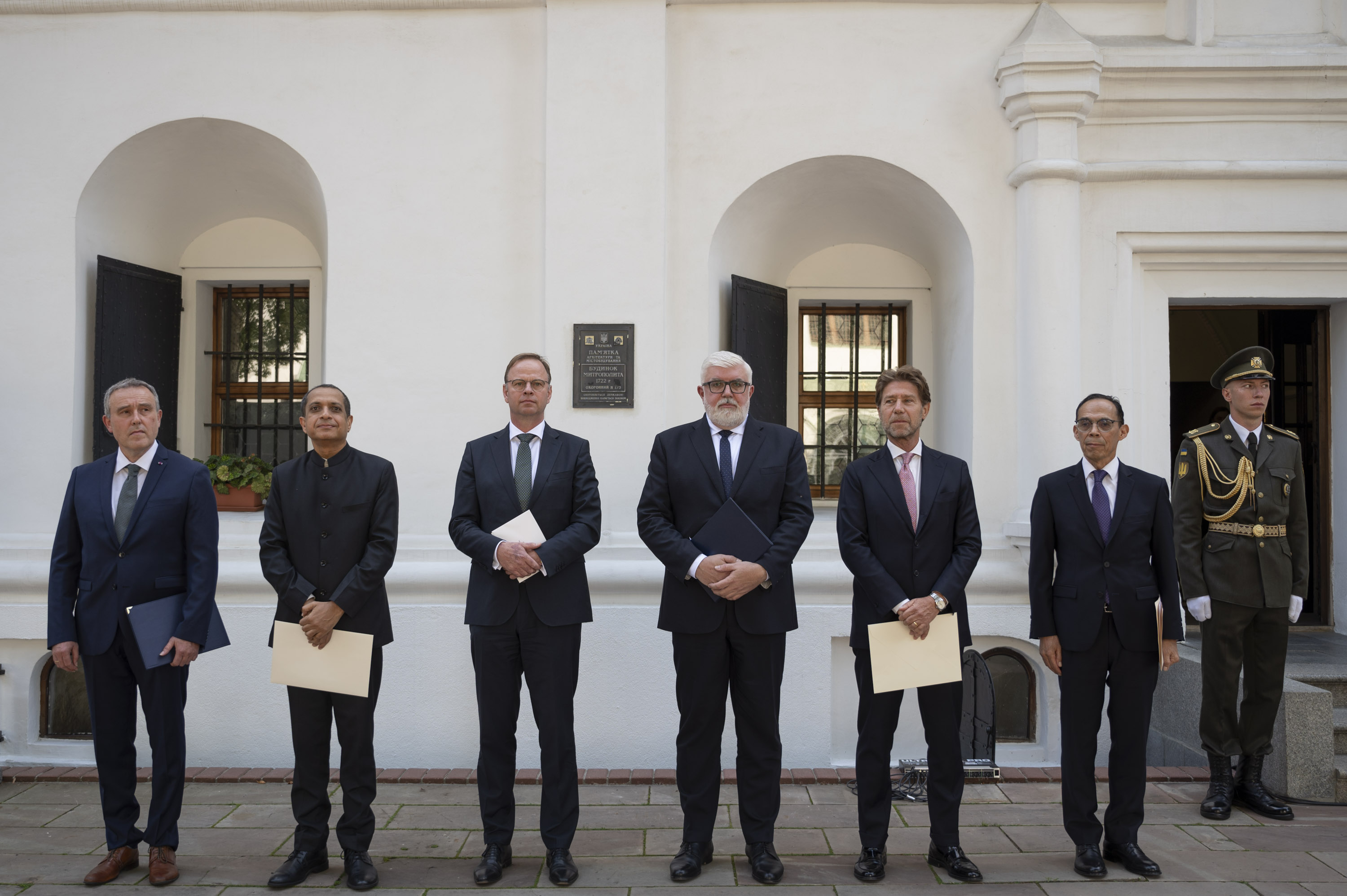Belgium is a dedicated and operational partner of Ukraine
We talk about the history and present of Ukrainian-Belgian relations with the Extraordinary and Plenipotentiary Ambassador of the Kingdom of Belgium to Ukraine, His Excellency Mr. Luke Jacobs

Mr. Ambassador! You first became the Belgian ambassador to Ukraine in 2014, after the russian invasion, and worked there until 2018. And now, this is your second time here, after a full-scale invasion. What are your impressions of the changes during this time?
Indeed, in spring last year there was an opportunity for me to return to Ukraine. So I applied for the post. I am grateful for the trust placed in me. The circumstances are dramatically and tragically different, for sure, but the underlying dynamics are the same. Ukraine remains steadfast in pursuing its freely chosen path towards full European and Euro-Atlantic integration. The full-scale invasion is a desperate but futile attempt to divert us from this course and has only bolstered our common resolve.
You held the position of Head of the Office for Bilateral Relations with the then candidate countries for EU membership (1999-2002). It was during Belgium's presidency of the EU that official negotiations began regarding Ukraine's accession to the EU. Your forecast regarding the reality and terms of Ukraine joining the family of European democratic countries.
My past professional experience provides me with an interesting prism through which I see Ukraine’s EU accession bid unfold. For Belgium deepening and enlarging the EU go hand in hand. A growing EU membership demands strengthening the institutional build-up. It is all about decision-making ability, internal cohesion, external effectiveness and financial sustainability. History has shown that political momentum can accelerate the pace of these processes, as was the case with the 2004 ‘Big Bang’ enlargement. Russia’s brutal attack has accelerated the granting of EU candidate status to Ukraine and the opening of accession talks. In what timeframe these talks will be concluded is hard for me to predict. But tight discipline, sustained focus and high-standard homework by either side will drive the process forward.
We are very grateful to Belgium for its strong military support, especially for the F16 coalition.
Since the first days of the full-scale invasion Belgium has been a committed and responsive contributor of military support to Ukraine. It started with the supply of tons of badly needed fuel to the Ukrainian armed forces. This was soon followed by subsequent military support packages consisting of equipment, weapons, ammunition, military ambulances etc. And as you indicate, Belgium contributes to a Ukrainian F-16 capacity, with aircraft, ammunition, training of pilots and technicians, and maintenance of the fighter jets. Belgium also participates in the maritime coalition and the coalitions on demining, IT, ammunition and air defence. The continuation of this support is being consolidated through a 10-year bilateral security agreement signed in May 2024.
Also, your country provides a lot of humanitarian aid to Ukraine. Please tell us about it.
Emergency goods have been dispatched since day one: tents, kitchen sets, blankets, medicines, electricity generators, food, field beds, sleeping bags, etc. Substantial contributions have been made to a wide array of UN agencies (UNICEF, OCHA, UNHCR, IOM, WFP, UNFPA), to ICRC and to the Grain from Ukraine initiative.

Currently, there is a good tradition of partner countries taking care of a certain region of Ukraine, supporting its reconstruction, humanitarian situation and investment climate. How is regional cooperation between Ukraine and Belgium developing?
The Belgian contributions to Ukraine’s reconstruction are centred around BE-Relieve programme. This 150 million EUR programme is aligned with President Zelensky’s 10-point Peace Formula. In its conceptualisation and implementation it is closely consulted with the national, regional and local authorities concerned. Its focus is on the Kyiv and Chernihiv oblasts, in the spheres of education and health, energy efficiency and green energy. On top of this, there is a sustained solidarity effort between local governments, reviving existing or initiating new forms of practical cooperation. Numerous civil society organisations also set up regular humanitarian convoys supplying communities that are most vulnerable to the indiscriminate violence and terror inflicted by the aggressor.
Despite the war, how many Belgian companies remain in Ukraine? What are the challenges they face?
Most of the Belgian companies present in Ukraine are in the able hands of Ukrainian managers and show a high degree of resilience in the face of war. Inevitably, activities had to be scaled down in the first dramatic weeks of the invasion. Some companies suffered heavy losses or their facilities were completely or partially destroyed. But production and turn-over are steadily picking up again. There are also examples of remarkable tenacity (closer to the front line) or astonishing productivity increase. The safety of employees and care for their families are paramount and in this effort they are generously supported by their Belgian headquarters.

Ukraine's energy sustainability, given today's realities, is one of the main challenges. What experience of Belgium could we use?
Belgian households increasingly turn to roof-top solar panels or invest in home battery storage systems to meet their energy needs. This also reduces their consumption of imported fossil fuels. Similar trends are being seen in Ukraine, in reaction to the attacks on civilian energy infrastructure. Belgium supports this development, for example through a 2.5 million EUR grant for installing solar photovoltaics on hospitals. In rebuilding social infrastructure improving the energy efficiency is key. What Belgium can learn from Ukraine is how to better defend critical energy infrastructure.
They say that in the 19th century in Belgium, Donbas was jokingly called "the tenth Belgian province". Why?
In the 19th century tsarist Russia realised it was lagging behind compared to the emerging industrial nations in the west of Europe. It started to work on its transport infrastructure to unlock remote but economically interesting regions and policies were devised to attract greenfield foreign investment.
At that time Belgium had already developed into an industrial powerhouse based on coal mining, metallurgy and transport technology. It was the first country on the European continent to have an operational railway. Belgian capital started pouring into Russia, primarily in the Donbas. The success of the first Belgian investors attracted others. By the turn of the 19th and 20th centuries more than hundred industrial plants had been set up in the Donbas. With them came thousands of engineers, managers, foremen and workers, all with their families. A dense network of consulates was being established.
Ukrainians are rediscovering and researching this shared industrial legacy and heritage, that have been occulted during soviet times, when the myth of Stalin’s genius had to be propagated.
What, in your opinion, are the cultural ties between Ukraine and Belgium, and how is cooperation between our countries developing in the humanitarian sphere? What do people in Belgium know about Ukraine?
Because of the war Ukraine is catching the attention of the Belgian media, with varying degrees of intensity, but much more than it used to be. The presence in Belgium of several tens of thousands involuntary displaced Ukrainians is also a factor. Belgians have become much better acquainted with the geography of Ukraine and with key aspects of Ukrainian society and identity.
This also permeates the cultural sphere. The Belgian public is more receptive to Ukrainian music and filmmaking, but also other visual arts like painting, sculpture, ceramics, photography, design and crafts. More Ukrainian authors are being translated and become accessible to Belgian readers. Let us not forget sports neither. Ukrainian football and tennis players have become household names. Ukrainian athletes have stunned the world during last year’s Olympics and Paralympics.
So Ukraine has an interest in further exploiting this wide-spread curiosity and goodwill towards everything Ukrainian in order to amplify its voice abroad and affirm its own identity.
Does the voice of Ukraine sound powerful enough in the world for our Victory?
The sheer brutality of the Russian invasion, in blatant violation of the international legal order and the UN Charter, made governments but also public opinion finally see through the groundless Russian narrative pretending an external threat to its existence and laying claim on Ukraine. I compare this with the bewildered reaction of the international community, back in 2014, to the illegal annexation, or rather ‘occupation’ of Crimea and the Russian-led destabilisation and subsequent occupation of parts of the Donetsk and Luhansk oblasts.
It is now a matter to remain consistent in supporting Ukraine in deconstructing this narrative as historically false and politically retrograde in all its colonial arrogance. The sinister pretexts for Russia’s aggressive behaviour should not be given any legitimacy if indeed we want to replace this devastating war with a just and lasting peace, and hold the aggressor accountable for the war crimes he committed and the huge damages he inflicted.
Оleksandr Kondratenko, Antonina Linnik
Open source photos